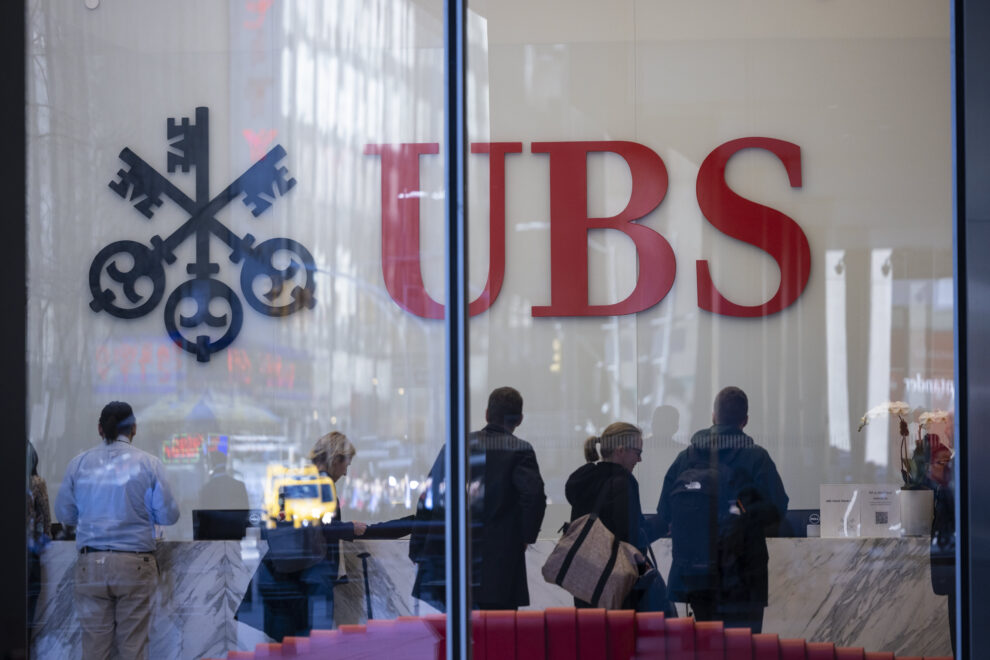
Signage at the UBS flagship office in New York, US, on Tuesday, March 21, 2023.
Bloomberg | Bloomberg | Getty Images
Swiss banking titan UBS on Wednesday posted a large profit beat, after completing its first wave of client migrations following its integration of collapsed domestic rival Credit Suisse.
Net profit attributable to shareholders came in at $1.43 billion, compared with a mean forecast of $667.5 million in a LSEG poll of analysts.
Group revenue was $12.33 billion, above analyst expectations near $11.78 billion.
Other third-quarter highlights included:
- Operating profit before tax of $1.93 billion, up from a loss of 184 million in the same quarter last year.
- Return on tangible equity hit 7.3%, compared with 5.9% over the second quarter.
- CET 1 capital ratio, a measure of bank solvency, was 14.3%, down from 14.9% in the second quarter.
The lender said it expects to complete its planned $1 billion share buyback program in the fourth quarter and intends to continue repurchases in 2025.
UBS turned course back toward profit in the first quarter of 2024 after two quarterly losses tied to the takeover of stricken Credit Suisse — an intensive, now completed process mired in OECD warnings over “new risks and challenges” posed to the broader Swiss economy and governmental concerns about the capital requirements of the resulting banking juggernaut. UBS defends it is not “too big to fail.”
The banks’ union has spurred UBS to trim expenses, with the banking giant saying in its second-quarter earnings release that it anticipated ending 2024 with cumulative gross savings from the Credit Suisse deal of $7 billion, out of a $13 billion target by 2026. The figures compare with a 2022 baseline.
UBS still faces the lofty tasks of integrating its IT system with that of Credit Suisse, along with migrating clients — with the latter transition set to take around 18 months, Reuters reported earlier this month. The bank on Wednesday said that in October it completed the migration of its Global Wealth Management client accounts in Luxembourg and Hong Kong to UBS platforms and intends to transfer over Global Wealth Management client accounts booked in Singapore and Japan by the end of the year.
A year and a half since UBS’ strong-armed merger with Credit Suisse, the onus is now on CEO Sergio Ermotti to set the bank’s trajectory against a landscape shaped by geopolitical volatility, declines in interest rates and pressure to keep pace with the double-digit profit growth of U.S. adversaries, such as Goldman Sachs and Morgan Stanley. Domestically, UBS operates in the confines of an economy defined by a robust Swiss franc and plunging annual inflation that slipped to just 0.8% in September, raising questions over further monetary policy easing from the Swiss National Bank — and the impact of such interventions on the profitability of commercial lenders.
The UBS results come after the profit beat of Germany’s largest lender Deutsche Bank last Wednesday and join this week’s spate of third-quarter reports from European lenders, including from BNP Paribas and Santander.
This breaking news story is being updated.









